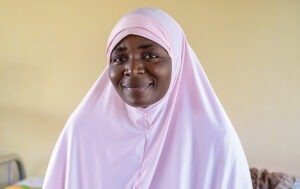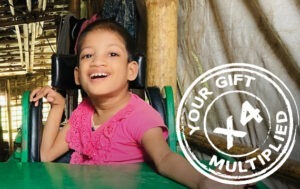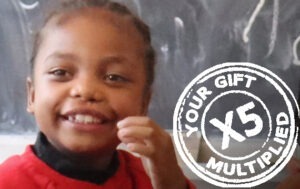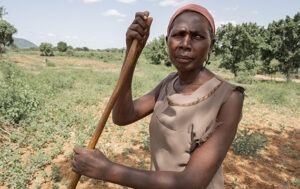Onchan
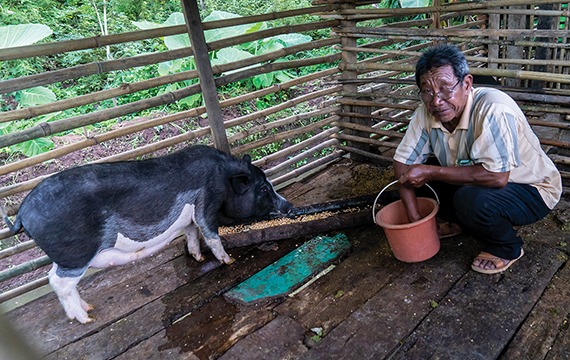
“You shall eat the fruit of the labour of your hands; you shall be blessed, and it shall be well with you.” – Psalm 128:2
Onchan is 62 and lives with his wife and their three sons, Yong (26) who has health challenges, Yu (21) and Bounmy (18) in Khoksavang, Luang Prabang Province.
Since the age of eleven he has had low vision in his left eye, when it was damaged by a bomb exploding. Despite his low vision, this has not held him back from what he wanted to achieve. Spending 22 years in the military then when retired, working as a mobile doctor and village volunteer.
At the beginning of 2021 Onchan’s village was one of the ten targeted for this community based inclusive development programme. Aiming to remove some of the barriers for people with disabilities and generally improving their day-to-day lives.
Onchan was chosen as leader for a self-help group of people with disabilities. Groups designed to provide support to each member and build self-confidence. The programme provided Onchan with training on topics such as the needs of people with disabilities, their rights, and improving their overall well-being. Agricultural training covered farming and caring for livestock/animal husbandry. Each time the group met, Onchan would share and discuss his newfound knowledge with the other group members. Helping them to improve their skills, gain confidence and become active members of the community.
Onchan now has a greater understanding of his own son’s disability and is able to support him more.
In September 2021 the programme provided 3 pigs to Onchan’s family. Caring for them using skills he has learnt from the agriculture training combined with his local knowledge. He is looking forward to watching the pigs eat well and grow quickly.
Additionally, he is raising fish under the pig pen, as they eat the leftover food and waste from the pigs. Generating further income and food for his family.
Besides raising the animals, Onchan has also worked in the fields, gardening and selling traditional medicine to supplement his family’s income. He is so very thankful for what he learnt from the programme, and how it continues to improve the life for him and his family.
Since this programme began, many people with disabilities have a greater understanding and awareness of their disability and their rights. They are becoming more involved in village community activities and discrimination from others is reducing.
It is exciting to see the initial positive outcomes of the programme. cbm is now pleased to extend the programme to another ten villages in more remote and mountainous areas, while continuing to support and develop the ten villages of the initial phase.

